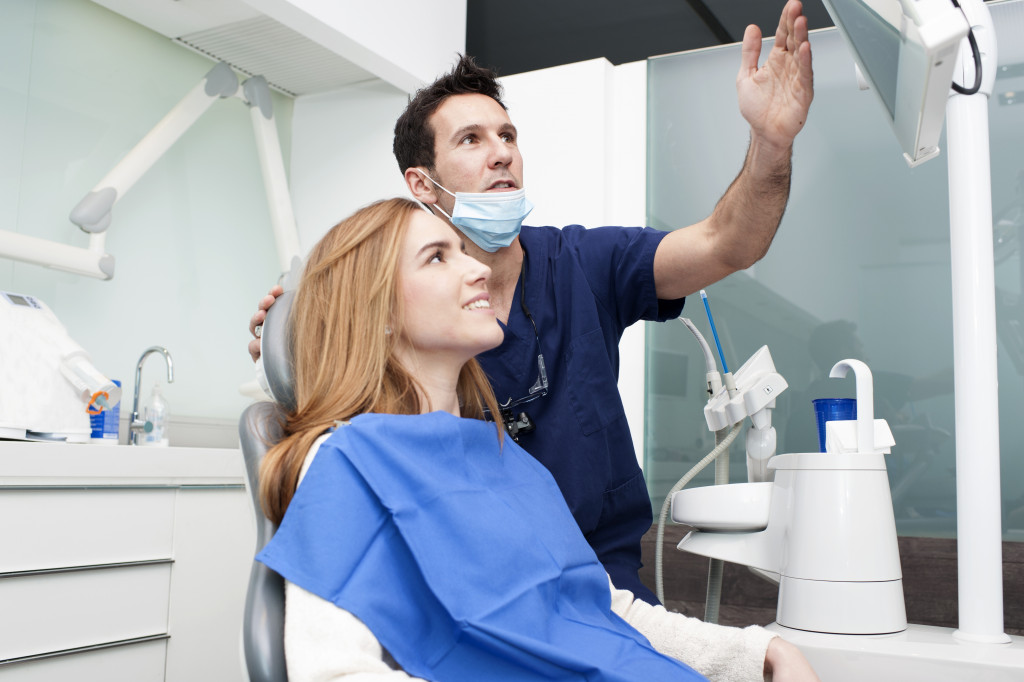If you’ve been experiencing a mild toothache or jaw pain, there’s a chance that it might be from bruxism. But what is bruxism? In this article, we’ll be discussing everything you need to know about this condition, from its symptoms to its treatment options.
So without further ado, let’s get started!
What is Bruxism?
Bruxism is a condition that causes people to grind their teeth involuntarily. This can lead to a lot of damage to your teeth, including chips, cracks, and even loss of teeth. Bruxism can also cause pain in your jaw and temples and tension headaches. It’s important to seek treatment for bruxism as soon as possible, as it can cause irreversible damage to your teeth and oral health.
What Causes Bruxism?
There is no one definitive answer to this question. However, some risk factors may increase your likelihood of developing bruxism. These include stress, anxiety, and caffeine consumption. Bruxism may also be caused by sleep disorders such as sleep apnea.
Other causes of bruxism may include:
Genetics
One possible cause of bruxism is genetics. If your parents or other family members have a history of grinding their teeth, you’re more likely to experience it. This is because bruxism may be caused by an underlying neurological condition that runs in families.
Misaligned Teeth
Misaligned teeth are another possible trigger for bruxism. When your teeth are properly aligned, they fit together snugly when you bite down. However, if your teeth are misaligned, they may rub against each other and trigger the grinding reflex.
Abnormal Bite
An abnormal bite can also lead to bruxism. If your teeth are not meeting properly when you bite down, it can cause the muscles in your jaw to work overtime, leading to teeth grinding.
Stress and Anxiety
As we mentioned earlier, stress and anxiety are common triggers for bruxism. When you’re feeling stressed or anxious, your body may produce more of the hormone adrenaline. This can lead to teeth grinding to release some of that built-up tension.
What Are the Symptoms of Bruxism?
The most common symptom of bruxism is teeth grinding. This can occur during the day or at night. If you grind your teeth at night, you may not be aware that you’re doing it. However, there are some other symptoms of bruxism that you may experience, including:
Jaw Pain
If you experience jaw pain, it could be a sign that you’re grinding your teeth. The pain may be constant, or it may come and go. You may also have difficulty opening your mouth wide or swallowing.

Headaches
Headaches are another common symptom of bruxism. The pain is usually dull and constant. It may be worse in the morning because that’s when the muscles in your face and jaw are the most relaxed.
Earache
If you have an earache, it could be a sign that you’re grinding your teeth. The earache may be constant, or it may come and go.
How is Bruxism Diagnosed?
If you’re experiencing any of the symptoms of bruxism, it’s important to see a dentist or doctor as soon as possible. They will ask you about your medical history and perform a physical examination. They may also order X-rays or other tests to rule out other conditions.
How is Bruxism Treated?
There are several treatment options available for bruxism. The best course of treatment will depend on the severity of your condition and the underlying cause.
Treatment options for bruxism include:
Mouth Guards
Mouthguards are usually the first line of treatment for bruxism. They’re worn at night to prevent you from grinding your teeth. An occlusal night guard can be custom-made by your dentist to fit your mouth.
Dental Splints
Dental splints are similar to mouth guards, but they’re worn during the day. They’re usually only worn if you have a severe case of bruxism or if mouth guards are not effective.
Cognitive Behavioral Therapy
If stress or anxiety is the underlying cause of your bruxism, cognitive behavioral therapy may be recommended. This type of therapy can help you learn how to cope with stress and anxiety in a healthy way.
Medication
If bruxism is caused by a sleep disorder such as sleep apnea, your doctor may prescribe medication to treat the condition.
Surgery
In some cases, surgery may be necessary to treat bruxism. This is usually only done if other treatment options have failed.
Bruxism can cause a lot of damage to your teeth and oral health. It’s important to seek treatment for bruxism as soon as possible, as it can cause irreversible damage to your teeth and oral health. If you’re experiencing any of the symptoms of bruxism, see a dentist or doctor as soon as possible. They will be able to diagnose and treat your condition.




